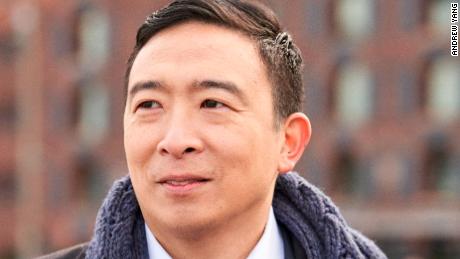Dr. Sara Nyquist told the Billings Gazette last month that a patient had asked whether she was a Republican or a Democrat.
“I said, ‘I am your doctor,'” Nyquist recalled. “You do wonder how we got here.”
America is deeply polarized, and this is just one example of a phenomenon we are seeing across the country. People are dividing themselves into camps and politicizing aspects of society that were once apolitical.
In one study conducted in 2019, political science researchers Nathan Kalmoe and Lilliana Mason found that more than 40% of people of both parties view the opposition as not just worse for politics, but “downright evil.”
How did we get here? After the Federal Communications Commission’s “fairness doctrine,” which required broadcasters to discuss controversial topics in an unbiased manner, was revoked in 1987, conservative talk radio exploded and more partisan news coverage emerged. The rise of social media also exacerbated polarization with algorithms that reinforce echo chambers.
We are now seeing the tangible effects of this division. Many politicians seem to be playing to their base rather than trying to persuade those in the middle. In Congress, obstruction rather than compromise seems to be the name of the game. Polarization can also lead to violence, as we saw with the insurrection at the US Capitol on January 6.
Many people recognize the problem I’m describing and profess concern. So, what can we do?
The easy response would be to offer a message of comity and universality. We are one country, still. And it’s true. Having had thousands of conversations with Americans of all walks of life over the past several years, I can say with confidence that we actually agree on more than you might think.
But we all know that this message would accomplish little. There is a real structural answer, and it comes from Alaska.
Earlier this year, Republican Sen. Lisa Murkowski voted to convict President Donald Trump of inciting an insurrection during his second impeachment trial.
She was the only Republican senator who faces reelection in 2022 to do so.
Her vote against Trump could have been an act of political suicide. But Murkowski still stands a chance in the 2022 midterm election thanks to new electoral laws in Alaska, which replaced partisan primaries with one open primary. Under this system, any voter can cast a ballot for any candidate. The top four, regardless of party, advance to the general election, with the winner determined by rank-choice voting. This system rewards candidates who appeal to a wide range of voters, instead of those who cater only to the more extreme factions within their parties that are more likely to vote.
This shift gives Murkowski a fighting chance to win reelection, and it’s no stretch to think that Alaska’s decision to adopt an open primary system enabled her to vote her conscience on Trump. This isn’t just a solution for Republicans; adopting open primaries could also benefit voters in blue states.
This solution is not an inspirational speech — it is change in process. As I argue in my new book, “Forward: Notes on the Future of Our Democracy,” the best way to reduce polarization is to modify our leaders’ incentives, so they can act more independently rather than trying to win the support of hyperpartisan voters.
In many parts of the country, enacting such a system would not require legislation — the change could be driven by the voters themselves. Alaska’s shift to open primaries came about after voters who wanted a more accountable and representative way to select their leaders gathered enough signatures to introduce it as a ballot initiative. Twenty-four other states, from Missouri to Massachusetts, allow for such ballot initiatives.
Polarization affects all of us. It hampers our elected leaders’ ability to effectively legislate, and it throws sand in the gears of our democracy. It’s time to act.
Of course, getting more states to adopt open primaries will be a challenge. And time is not on our side. But Alaska has shown it is achievable. Millions of us must come together quickly to say, “Enough is enough. The people who are affiliated with a different party aren’t my enemy. The real enemy is a system that rewards people for turning us against each other.”
This is the way we bring the country back together and start moving forward.






